Datagrams - A Multipart Google Suite Puzzle based on Set
Some of my previous posts show how one can use Google sheets as standalone puzzles for role-playing games. This article takes things a step further by involving a progression of puzzles in order to get past a hurdle. The primary puzzle is based on Set, but the overarching puzzle involves an orchestration of other hurdles.
All resources are provided :D
Outline
This puzzle has three components:
- Datagrams - a Google sheet with mysterious triple-decker rectangles.
- A collection of post-it notes (or images thereof) that describe how to decode datagram sets
- DatagramTools - a Google sheet that takes decoded datagram ids and produces the encoded message
Click on the links to make a copy of the respective Google sheet.
Datagrams
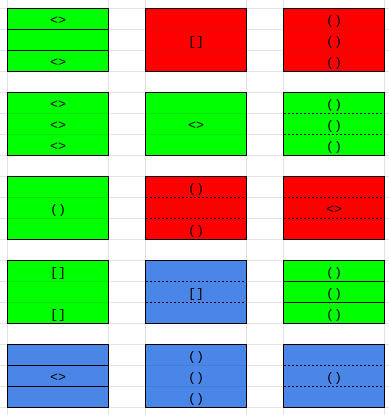
The Datagrams sheet contains a bunch of mysterious rectangles. These are central to the puzzle. Each rectangle has four properties, each with three variations:
- color: red, blue and green
- shape: oval (), diamond <>, and rectangle
- line style: solid, dashed, none
- shape count: 1, 2, and 3
Unbeknownst to the players, this is identical to the game Set, in which players try to find a set of three cards that, for every property, either all have the same value or all have different values. For example,
The (unique) valid sets in the Datagrams sheets are:
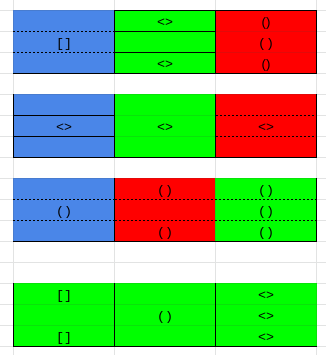
Disparate Post-Its
The players are unlikely to realize that the Datagram sheet contains sets. Even if they did, they definitely would not know what to do with them once they found them.
To solve this problem, four mysterious post-its are scattered throughout the world, to be found in other parts of the campaign. They can be hidden behind images in Google Slides, added to Google Docs, inserted in Google Sheets, found drawn into other images, etc.
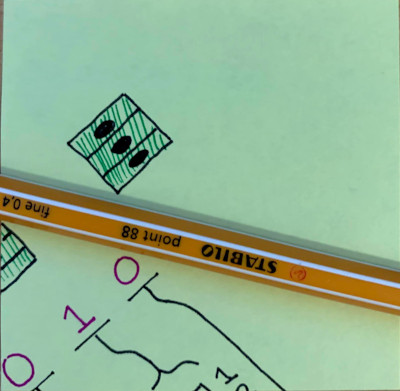
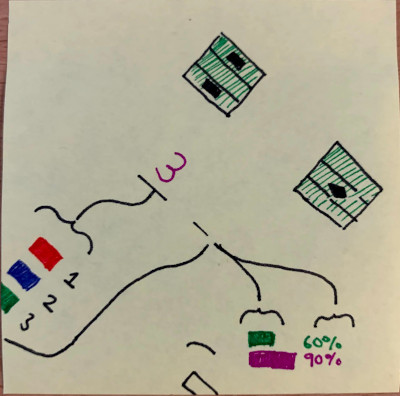
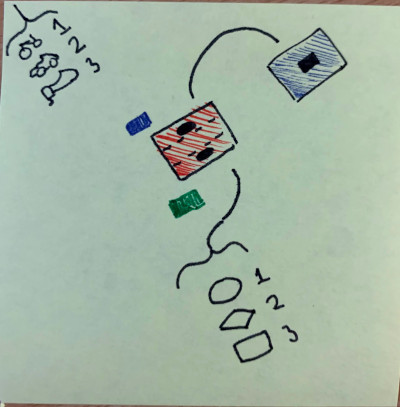
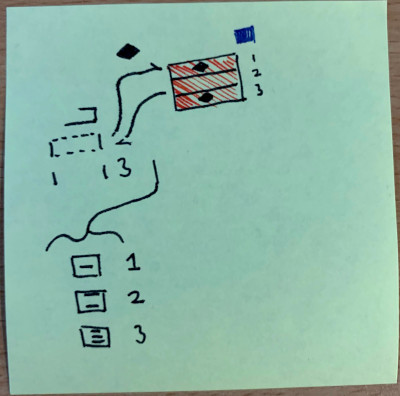
These post-its are intentionally cryptic, with more stuff drawn on them than necessary. However, if players get creative, they can overlap them to form the hidden image:
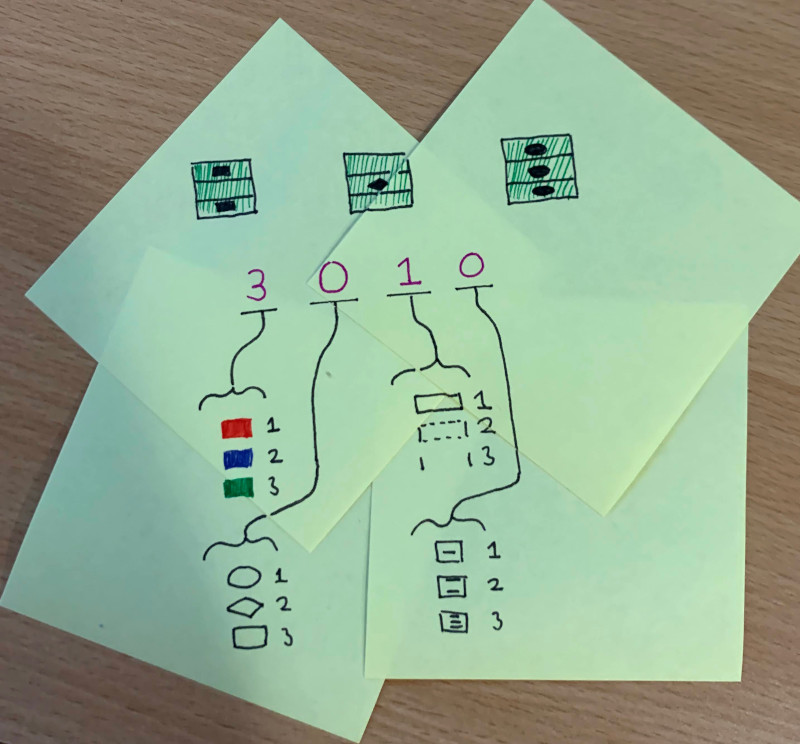
My players did this collaboratively in Google slides, but you could print them out physically, etc.
This hidden diagram tells us to look for datagram sets in the Datagrams sheet, and more importantly, what to do with a datagram set once we find one! Each datagram set gives us a 4 digit number. The first digit is based on the color (1 if all red, 2 if all blue, 3 if all green, 0 if all different), 2nd digit is based on the shape, third digit is based on the line style, and the fourth digit is based on the shape count.
If we look at our datagram sets from above, we can thus decode them to:
- 0000
- 0201
- 0120
- 3030
The Datagram Tool
The final step in this puzzle is to take these digits and turn them into something useful. To that end there is the mysterious Datagram Decoder:
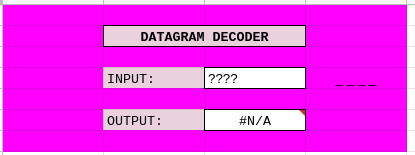
This Google sheet is a simple interface with an input field into which the players can enter a number and (potentially) get something useful out.
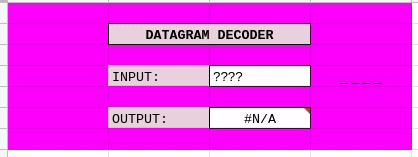
The players can encounter this much earlier in the session, only to come back to it later.
Our digits give us:
- 0000: " ITS H"
- 0201: " DROP I"
- 0120: "T LIKE"
- 3030: "OTSPOT"
Rearranging these strings gives us: " DROP IT LIKE ITS HOTSPOT", which is the secret password to another puzzle.
Adapting It to Your Game
You can re-skin this puzzle for your own game! The datagrams can be converted into other set types with other properties. For example, you could have {kobold, dragon, giant} be a property, or {dragon, lion, serpent} for good-old chimeras. Or go with metals like {bronze, silver, gold}, or weapon types {sword, axe shield}, or size {small, medium, large}, etc. Imagine a weapons room with a bunch of weapons, of different metals, of different lengths, and with handles of different leathers.
The decoder tool can obviously be changed so that the outputs are different. You can thus easily replace DROP IT LIKE ITS HOTSPOT with your own output.
Hope you find this useful!
Not Registered Yet? No problem.
Do you want Strolenati super powers? Registering. That's how you get super powers! These are just a couple powers you receive with more to come as you participate.
- Upvote and give XP to encourage useful comments.
- Work on submissions in private or flag them for assistance.
- Earn XP and gain levels that give you more site abilities (super powers).
- You should register. All your friends are doing it!
? Responses (2)
Some High quality posts here, Mageek. Awesome!
Another fantastic puzzle.
I just realized my cousins are going to hate me for it. I tend to goof with them sometimes. I usually give gift cards hidden in dumb books with the card taped or the code written somewhere in it vs just getting a simple gift box. This is next level, solve the riddle for the gift stuff that I am definitely going to abuse!!!!